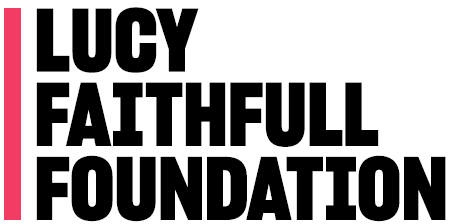Preventing harmful sexual behaviour: evaluating the Risk of Online Sexual Abuse (ROSA) Project
Around one-third of child sexual abuse is carried out by under-18s and online harm is a growing problem as young people’s use of technology has increased. Many people might be surprised at this but it shows how important prevention work with young people can be. To combat these issues, in 2018, we launched the ROSA Project.
Over three years, we worked with young people between the ages of 11-19 who had exhibited technology-assisted harmful sexual behaviour (TA-HSB) to find out about the background to their offending, how to help them not offend again, and how best to put this knowledge into prevention work more widely. These findings are published in the second in our series of Faithfull Papers, which report on key insights and research.
What is technology assisted harmful sexual behaviour (TA-HSB)?
Harmful sexual behaviour is a term used to describe sexual actions that are outside what is safe for a young person’s stage of development. It includes actions that could harm either the young person or another person. TA-HSB involves the online world or other technology and can include:
- sharing self-produced sexual images (with or without consent)
- viewing or sharing adult pornography
- grooming and online solicitation
- online sexual harassment
- viewing, possessing or distributing sexual images of under 18s
- viewing extreme pornography.
What did the ROSA Project do?
The project was housed in HALT, a statutory service in Glasgow for children and young people who have displayed HSB. The ROSA Project worked with 68 young people HSB allowing them access to our Inform Young People programme, an already established Lucy Faithfull Foundation programme for young people who have displayed TA-HSB. This programme involved 6–10 sessions of one-to-one early intervention psychoeducational support.
In addition to our direct work with young people in Glasgow who had displayed TA-HSB, the ROSA Project was supplemented with wider proactive and capacity-building work with a secondary school in Glasgow. This planned approach was to work with pupils, staff and parents at Shawlands Academy to develop and share key knowledge, skills and messages about online safety and HSB and to explore the prevention of TA-HSB.
We commissioned the Children and Young People’s Centre for Justice (CYCJ) at the University of Strathclyde to evaluate this work, which you can find here.
What did the ROSA Project find?
- Most young people were referred directly from social work (48%) after issues had been identified in a child protection context. Only a minority of young people referred had been charged with a sexual offence (n = 11), although most behaviours could have led to their being charged with a sexual offence.
- Eight individuals were referred through diversion from prosecution. Overall, the ROSA Project served as a pathway for young people to address their TA-HSB outside the adult criminal justice system.
- Among the 61 young people whose data were analysed as part of the project evaluation, the mean age was 14.4 years and 62% were male. Most young people we worked with where there was an identified victim were male (79%). Most of the identified victims were female (n = 35).
- Certain groups of young people may be more vulnerable to being victims of or engaging in TA-HSB, in particular LGBTQ+ youth, young people with ASD and young people with mental health difficulties.
- Some young people (44%) had experienced harm and abuse. Some young men who had viewed and distributed sexual images of under-18s had themselves been drawn into such behaviour by being groomed by adults and then sent illegal materials.
- Shame and stigma for young people and their families was considerable. ROSA staff were highly valued for offering a supportive, non-judgemental relationship, as well as knowledge and expertise. The service was viewed as filling an important gap in service provision, both in terms of being targeted at an early intervention stage of behaviour, and offering specific support around TA-HSB.
What did people say about the ROSA Project?
The ROSA Project was viewed as filling an important gap in service provision, targeting young people at an earlier stage of their behaviour and offering specific support around TA-HSB. Both participants and parents said the project had a positive effect on the young people referred to it, to the extent that only two had been re-referred with follow-ups showing promise that the project had a positive impact.
Although most of the young people felt apprehensive at first about their referral to the ROSA Project, most reported that it had had a positive impact on and increased confidence, knowledge and learning around their understanding of internet safety, consent, and the law. Adults (parents, carers and professionals) also agreed that the programme had had a positive influence on their children.
What are our recommendations?
- The children and young people referred to the ROSA Project often presented with very complex TA-HSB behaviours and welfare needs. The support needed to address this, and the impact on staff capacity (for example, time spent engaging and building relationships, extension of the programme to respond to responsivity needs, maintaining ongoing support post-programme) should be factored in to any future service rollout.
- Mainstream assessment tools, used with young people involved with youth crime generally and harmful sexual behaviour specifically, may lack specificity in measuring change in key factors relating to online risk and TA-HSB. New tools scaling the specific risk and protective factors targeted by intervention programmes will need to be established in the future.
What next?
We hope to use the lessons learned to improve and increase young people’s access to our programmes, including by training professionals to deliver interventions. Plans are underway to replicate and build on our work in schools and we hope to build on our understanding of the issues highlighted by the ROSA Project through further research on this subject in the months ahead.
If you’d like to discuss any aspect of this work, please contact research@lucyfaithfull.org.uk.
Sign up for news & updates
Fill in our newsletter form hereTo support our work to protect children, donate today.
Donate today






